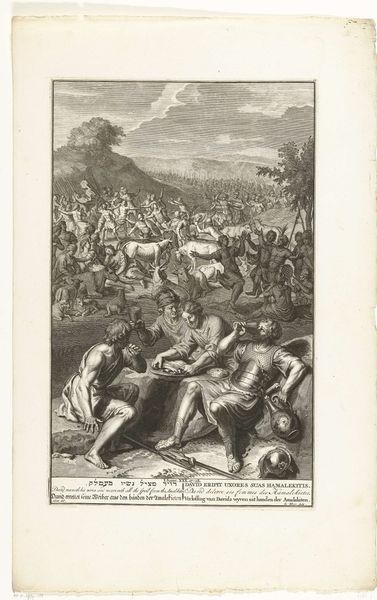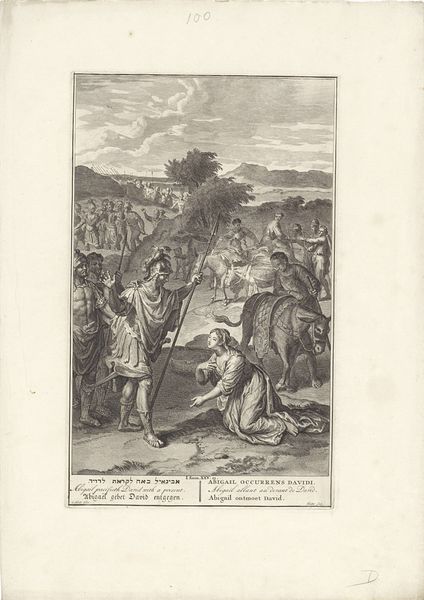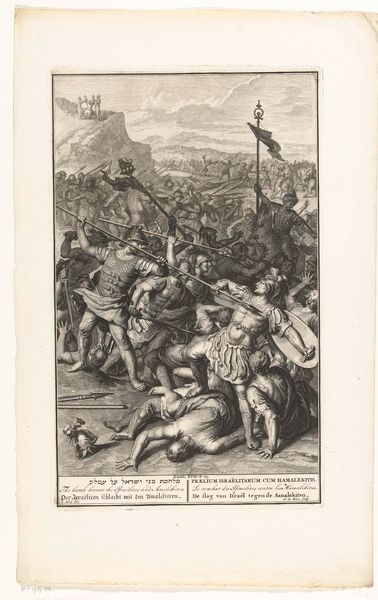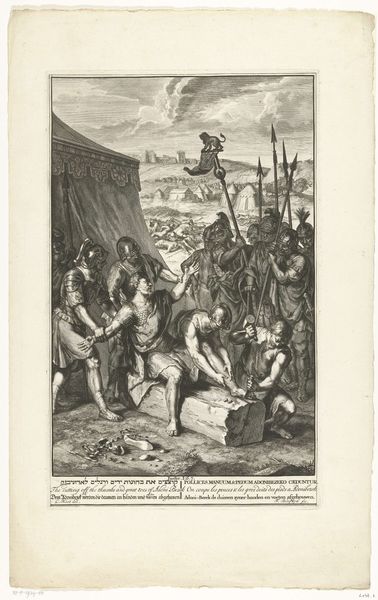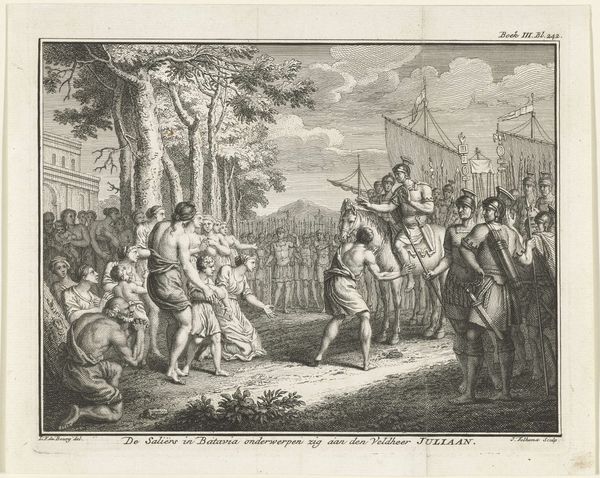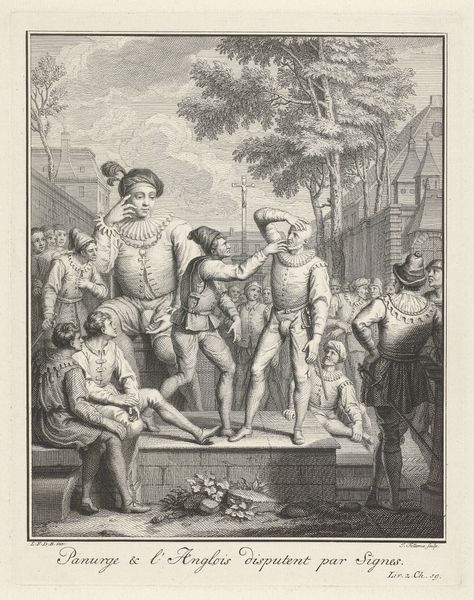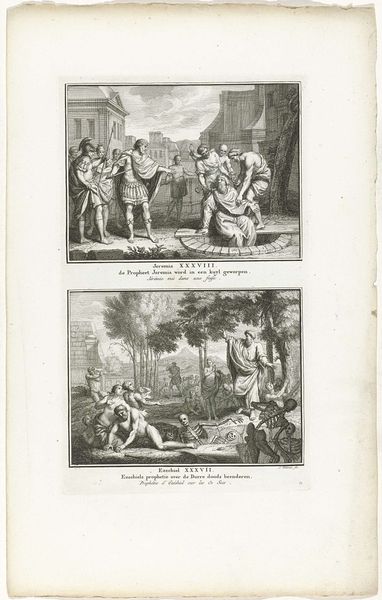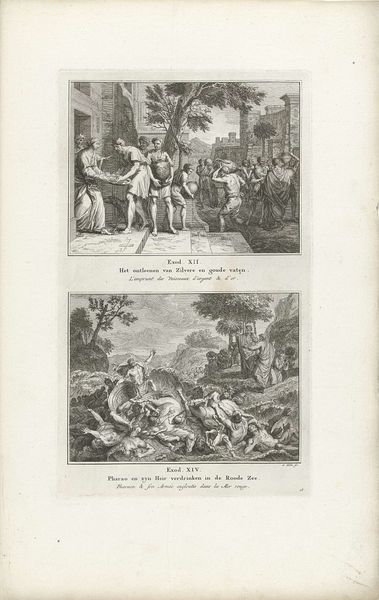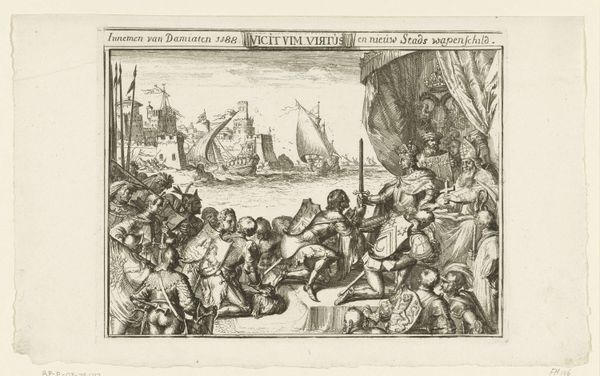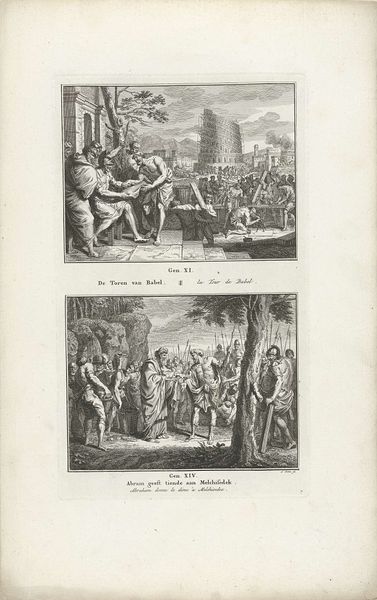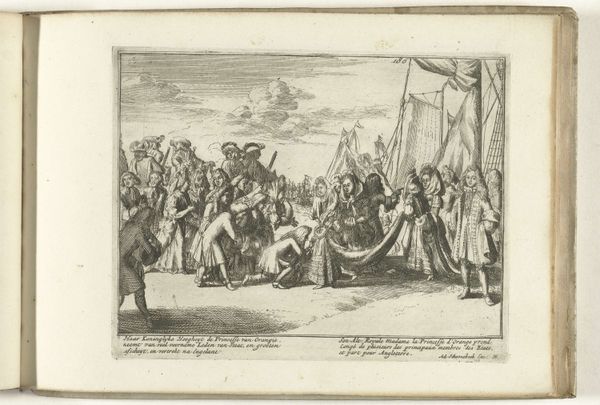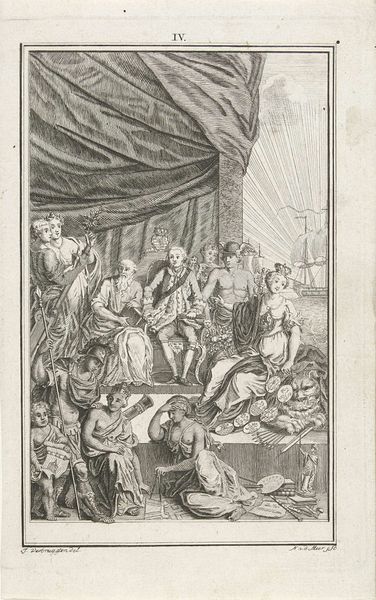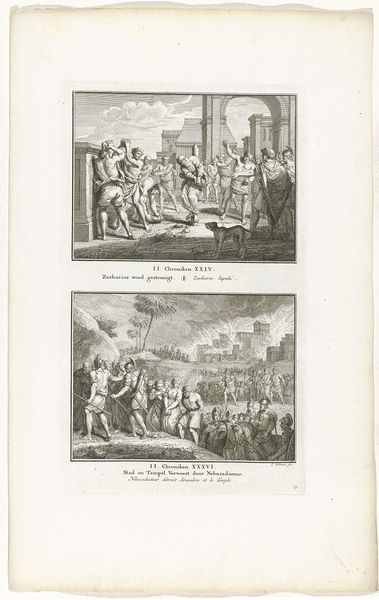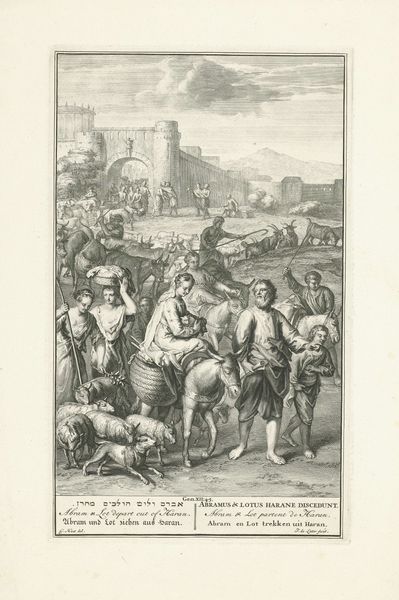
print, engraving
#
narrative-art
#
baroque
#
pen drawing
# print
#
old engraving style
#
pen work
#
history-painting
#
engraving
Dimensions: height 351 mm, width 219 mm
Copyright: Rijks Museum: Open Domain
Abraham de Blois created this print, "Gibeonites deceptively induce Joshua to a peace treaty," around the turn of the 18th century using etching. It illustrates a story from the Book of Joshua, where the Gibeonites trick the Israelites into a treaty by feigning a long journey. The image creates meaning through recognizable visual codes: Joshua is depicted with authority, while the Gibeonites kneel, presenting worn-out provisions to symbolize their supposed travel. Made in the Netherlands, a culture deeply influenced by the Reformation, this print reflects the era’s engagement with biblical narratives. The Dutch Republic, with its burgeoning print culture, used such images for moral instruction. Prints like these also served a didactic purpose, reinforcing religious values. The Rijksmuseum, as an institution, plays a role in preserving and interpreting such cultural artifacts. The meaning of this print is contingent on its historical, social, and institutional context, emphasizing the complex interplay between art, religion, and society in the Dutch Golden Age. Historians delve into period texts and cultural studies to better understand it.
Comments
No comments
Be the first to comment and join the conversation on the ultimate creative platform.
